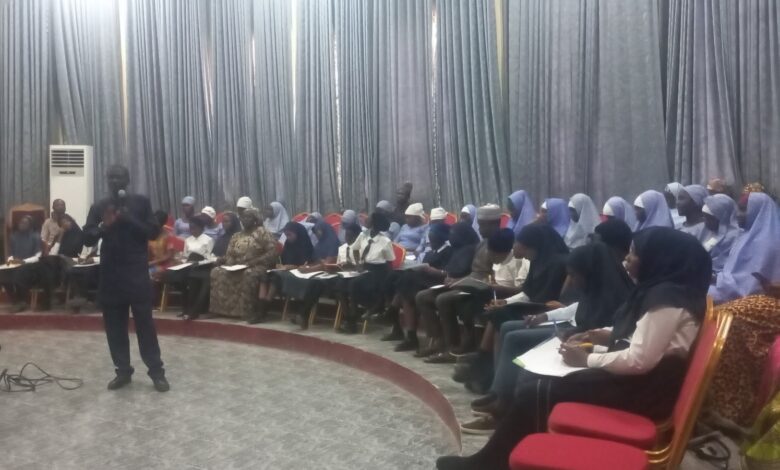NGO In Northeast Nigeria Introduces Teenage Girls To The Digital Space
An NGO in Borno state, northeast Nigeria, rounded up the month of March by introducing young girls to tech, helping to change the perception that the digital space is male-only.

An NGO in Borno state, Northeast Nigeria, the Gender Equality, Peace and Development Centre (GEPaDC), is making strides in bridging the gender gap in the digital space by empowering young girls with ICT knowledge.
Supported by the Global Fund For Women, the organisation selected 40 girls from two schools in Borno state and coached them on leveraging the digital space to advance their careers and compete favourably with their male counterparts.
In Borno, a conservative state in northern Nigeria, many parents who agree to send their female wards to school still do not encourage them to take science courses because it is erroneously tagged as a male domain. They are instead advised to go into studying courses that would enable them effortlessly function as working-class wives.
Head of GEDPaDC, Professor Patricia Donli, said though the training came up on Mar.30, 2023, in Maiduguri, Borno state, it was organised in line with the 2023 edition of the International women’s Day, “Digital Innovation and Technology for Gender Equality”.
Donli said the under-representation of Women and girls in STEM prompted the theme for the 2023 IWD.
“There are many reasons for the under-representation of women in STEM in Africa – male domination, Gender norms, stereotypes, biases, and sexual harassment emerge as key drivers of low representation of women,” she said.
“These challenges limit the chances of girls’ exposure to these fields, discouraging more girls from pursuing STEM careers, creating a vicious circle that must be disrupted.”
The girls were given lectures on the importance of participation in science, technology, engineering, and mathematics (STEM) and the opportunities and prospects available to them in these fields. Professor Zainab Chellube and Dr Eric Siben from the University of Maiduguri discussed “the gender gap in the digital space and strategies for bridging it”.
Professor Donli highlighted the reasons for the under-representation of women in STEM in Africa, including male domination, gender norms, stereotypes, biases, and sexual harassment. She emphasised the need to address these issues to encourage more girls to pursue careers in STEM.
“The coaching program was designed to demystify the digital space as a male domain and equip the girls with the necessary skills to navigate it,” she said.
The girls were trained in various aspects of ICT, including coding, website design, and social media management. They were also taught how to use the internet to research and gather information, as well as how to protect themselves from online risks such as cyberbullying and identity theft.
The program has succeeded, with many girls expressing their newfound confidence in using ICT to achieve their career goals.
One of the beneficiaries, Aisha Mustafa, a student of Shalara Secondary School in Maiduguri, said before now she used to think that the digital space was only for boys.
“But after today’s coaching program, I now know that every girl can use the internet, the computer to develop themselves, as long as it is not misused,” she said.
Another beneficiary, Fatima Yahaya of Government Girls College, Maiduguri, said she “felt so excited about this training programme which is all about gender equality and how girls can take advantage of the digital space for self-advancement; and how we can use the digital space just like the men to do whatever we can do to develop our God-given talents.”
Ann Darman-Bukar, a Senior Official at GEDPaDC, who facilitated the training, said the program has empowered the girls with ICT knowledge and helped break down gender barriers and stereotypes.
“The girls now see themselves as able to excel in STEM fields traditionally dominated by men.
She said GEPaDC has been making other significant impacts in bridging the gender gap and ensuring equity. The NGO has assisted female students in forming peace clubs in schools, which have been helping them to develop “self-confidence” and forge their chosen career paths.
Support Our Journalism
There are millions of ordinary people affected by conflict in Africa whose stories are missing in the mainstream media. HumAngle is determined to tell those challenging and under-reported stories, hoping that the people impacted by these conflicts will find the safety and security they deserve.
To ensure that we continue to provide public service coverage, we have a small favour to ask you. We want you to be part of our journalistic endeavour by contributing a token to us.
Your donation will further promote a robust, free, and independent media.
Donate HereStay Closer To The Stories That Matter




